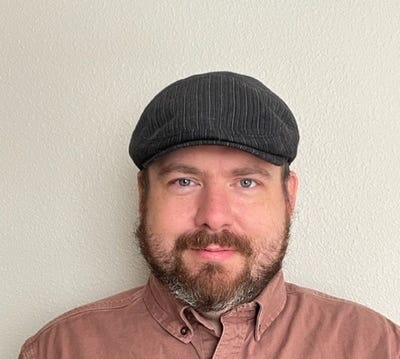
CGT operational and strategy consulting organization Dark Horse Consulting Group (DHC) has announced its acquisition of BioTechLogic (BTL) in a move aimed to cement DHC’s standing as a one-stop-shop for developers and manufacturers seeking CGT expertise.
The move aims to extend DHC’s portfolio by bolstering its consultancy services in process development and manufacturing, technical operations, quality systems, and regulatory chemistry, manufacturing, and controls (CMC). It also expands DHC’s global outreach, which already has offices in London, Singapore (as of 2023), and the United States. BTL will retain its name and be recognized as a division of DHC.
"We are thrilled to welcome BTL to the Dark Horse Consulting Group," said Anthony Davies, founder and CEO of DHC. “This acquisition allows us to extend our client base into the domains of traditional biologics and vaccine development while further optimizing efficiencies of cost, timeline, and resources for our CGT customers. We are excited to combine DHC’s ‘white glove’ strategic advisory services with BTL’s significant operational expertise and technical services.”
Dark Horse in a shrinking field
Davies leveraged his engineering background and extensive knowledge of CGT manufacturing to found DHC in 2014, which at the time was focused predominantly on manufacturing.
“Pretty soon, we started getting asked to do quality systems work, regulatory work, facilities work,” Davies told BioProcess Insider. As a result, the company leaned into those areas of expertise while retaining its focus on advanced therapies. To meet those needs, DHC hired experts from across the industry. As an example, Davies offered, “We’ve hired half-a-dozen super high level people from the FDA,” who he touted as having decades of experience.
BTL was founded in 2004, originally focusing on modalities such as monoclonal antibodies (mAbs) and vaccines, having migrated into CGT consulting in the past ten years. “They bring a skillset from the world of mature and commoditized industries,” Davies said. “In the cell and gene world, we wish we were like that more.”
_on_stage_in_2023.jpg?width=700&auto=webp&quality=80&disable=upscale)
Anthony Davies (right) on stage in 2023.
Davies sees the acquisition as a synergistic one that will enable DHC and BTL to cross-pollinate while providing a wide range of services available to a broader swath of developers and manufacturers with diverse needs. In simplified terms, he defined DHC’s role in consulting as strategic, while BTL’s is more tactical.
“We work with a lot of financial institutions on mergers and acquisitions (M&A), diligence, and market [considerations],” Davies said of DHC. Conversely, BTL focuses on operational matters such as writing regulatory filings, building quality-management systems, and remediating manufacturing plants that have run into regulatory trouble.
An expanded need for CGT consulting
“In 2019, when Scott Gottlieb was FDA commissioner, he predicted that by 2025 the FDA will be approving ten or more CGTs per year,” Davies said. At the time, only three were approved in 2017 with the following three years seeing even lower approval rates. “But then it suddenly took off. Last year, seven [CGTs] were approved and this year it will probably be close to ten.”
But as Davies said in a previous conversation with BioProcess Insider, not all approvals lead to successful commercialization. “At the end of the day, if companies don’t make good money on this first generation of drugs, the field is not going to survive. It will break the virtuous cycle of investment.” He added, “Our mission is to improve these commercial launches by reducing the cost basis of manufacturing, and I think commercialization of these drugs is an area that’s right in my crosshairs at Dark Horse.”
For companies to succeed, Davies said, “Sooner or later in clinical development, partner with a company that has launched drugs before.” He expressed a desire to work with companies as they reach Phase II, when they should already be planning a commercial launch. “You need commercials, you need a sales force, you need a supply chain, and physician education,” he said, in addition to productive conversations with insurance companies.
“You need to be able to convince people that this drug really is worth it.”
About the Author
You May Also Like









